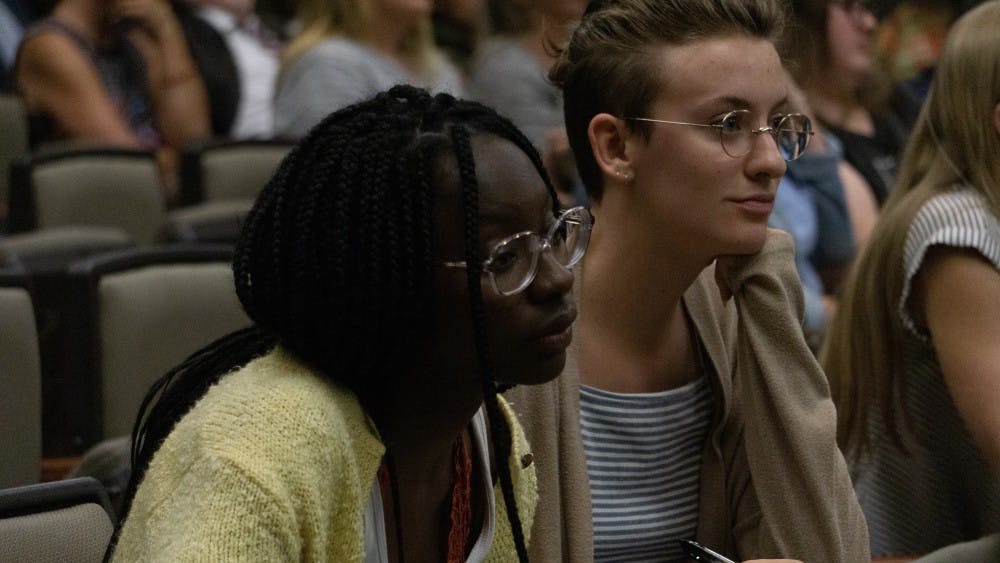The life of Daryl Davis, an African American musician, is the subject of a documentary about his hobby: befriending members of the Ku Klux Klan, screened Thursday at Ball State.
Titled “Accidental Courtesy: Daryl Davis, Race & America,,” the documentary was screened in room 175 of the Arts and Journalism Building by Adam Schwartz, professor of language, culture and society at Oregon State University.
Schwartz held the screening to facilitate a dialogue on approaching the problem of racism with the audience members, with questions based on the audience’s opinions on the film.
“I think that what’s really special about this is that the documentary itself challenges dialogue and then we do that by using dialogue to challenge it back,” Schwartz said.
Davis said he speaks with Klan members in an effort to bridge the gap and “make friends” with the people who hate him based on the color of his skin. The 2016 documentary features Davis meeting with members of the KKK at different levels of the organization, including its “Grand Wizard” and “Grand Titan.”
Since 1990, Davis estimates he has accumulated about 24 Klan hoods that reformed members have given him, including that of Scott Shepard, a former Klansman.
“He gave me encouragement, and we’ve been friends ever since,” Shepherd said.
Schwartz said he thought the audience responded well to the screening and was “impressed” with the level of engagement with each other after the end of the film.
Audience members were encouraged to split off into duos and trios and discuss the ways their views on Davis’s mission changed throughout the film.
Junior music education major Aidan Strain and freshman special education major Aléthea Kessler participated in the event and discussed the film together.
“It’s all about relationships,” Strain said. “They mean so much more than any words or policy or ideology. I think any of your viewpoints can be changed or at least molded by a conversation or a relationship with somebody else.”
Not every person Davis formed a relationship with was receptive to his message. Black Lives Matter activists following riots in Ferguson, Missouri, and Baltimore activists like Kwame Rose, Tariq Touré and J. C. Faulk chastised Davis for his sympathy for avowed racists.
Kessler and Strain sided with Davis’ view of activists, who had walked out on a conversation with Davis in anger over his efforts to befriend Klansmen in the film.
“I liked that [Davis] was able to reflect on seeing [the activists’] perspective and how they were upset, because [Faulk] felt like he had betrayed them,” Kessler said.
Schwartz said while he thinks there are flaws with Daryl’s efforts, his efforts were admirable in the long run.
“I don’t think anybody could jump into his skin and do this, but his courage, his willingness to be vulnerable, his attempt to dismantle [the KKK], that’s bravery,” Schwartz said.
Contact John Lynch with comments at jplynch@bsu.edu or on Twitter @WritesLynch.





